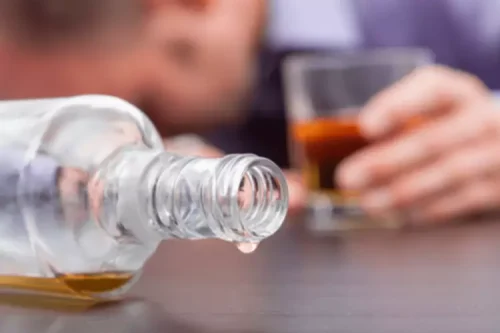
Alcohol is a depressant that changes the way the nervous system functions. When a person stops drinking alcohol, they may experience nervous system effects such as tremors. Delirium tremens occur in about 2% of people with alcohol dependence.
Have more questions about our programs?
- There’s a reason you’ve reached the decision to quit or cut back.
- Once alcohol intake is reduced or stopped, the sudden lack of its inhibitory effect leads to a hyper-excitable state, manifesting as shakes, agitation, and other withdrawal symptoms.
- The condition is often diagnosed as alcohol-induced brain damage.
- Serious side effects can occur with any benzodiazepine, as well as possible dangerous interactions with other drugs or medications.
- Supportive relationships and social networks are an incredibly important aspect of alcohol recovery that can make a world of difference in your journey towards a…
Alcohol withdrawal syndrome can be life-threatening if your blood pressure and heart rate are not managed during the detox process. When it comes to the duration of alcohol shakes, it can be different for everyone. Generally, shakes begin 6 to 8 hours after the last drink, peaking around 24 to 48 hours afterward. However, depending on the severity of the dependency and individual factors, they can persist for several days.
- This is the best and most effective way to stop the alcohol shakes and have relief during withdrawal.
- Alcohol tremors are involuntary shaking/trembling of one or more parts of the body.
- This can help them determine your symptoms and measure the severity of your withdrawal.
- However, if you’re experiencing alcoholic shakes related to delirium tremens, it’s important to seek medical help immediately.
- Side effects like hallucinations, seizures, and delirium tremens (DTs) are also possible.
- If you are going to have delirium tremens, usually symptoms start between 2 and 4 days after your last drink.
Additional Common Questions
It’s estimated that about 4-5 percent of people undergoing alcohol withdrawal experience the DTs. Those who have been heavy drinkers for many years are most at risk. Even side effects like vomiting and sweating can contribute to dangerous dehydration, which can be deadly. Because of this, detoxification from alcohol should always be done under medical supervision. For more severe cases, inpatient residential treatment programs may be necessary.
How to Stop Alcohol Shakes & Tremors
A chronic cough may be linked to a more serious underlying chronic medical condition such as postnasal drip, asthma, GERD, chronic bronchitis, and treatment with ACE inhibitors. The cough may linger until you receive a proper diagnosis and begin the right treatment. It occurs as a natural reflex when inflammation or irritation affects your airway. A dry cough is also called a unproductive cough because it does not produce phlegm or mucus. If you have delirium tremens, confusion is one of the key symptoms you’ll experience.
- Those who have been heavy drinkers for many years are most at risk.
- The first-in-class Cala Trio therapy offers individualized treatment for hand tremors with a wrist-worn device that sends electrical stimulation to nerves in the wrist.
- American Addiction Centers (AAC) is committed to delivering original, truthful, accurate, unbiased, and medically current information.
- It simultaneously increases the number or sensitivity of receptors that bind to glutamate, another neurotransmitter, in a bid to counter the sedative effects of alcohol.
- Engaging in appropriate lifestyle habits can also help improve alcohol shakes.
- Alcohol tremors usually happen when someone with chronic or long-term alcohol abuse quits drinking.

In contrast, delirium tremens (often abbreviated as DTs) represents the most severe form of alcohol withdrawal, occurring in a small percentage of individuals detoxifying from alcohol. Symptoms typically emerge between 48 to 96 hours after the last drink. DTs are marked by pronounced confusion, hallucinations, severe tremors, and autonomic hyperactivity, which can include rapid heartbeat and elevated blood pressure. Crucially, delirium tremens can be life-threatening and often requires immediate medical intervention. Recognizing the distinction between minor shakes and the more severe delirium tremens is crucial in ensuring timely and appropriate care for individuals undergoing alcohol withdrawal. Severe cases of alcohol withdrawal can result in delirium tremens (DTs), a potentially fatal condition that requires immediate medical attention.

Treatment for Alcohol Shakes
Drinking alcoholic beverages slows down brain functions and inhibits certain chemicals that help regulate mood. Why do hangover shakes happen, and are they a sign of anything serious? Read on to find out and pick up a few tips to help yourself feel better. Make sure you enjoy plenty of activities to help you avoid alcohol. The condition is often diagnosed as alcohol-induced brain damage.
These involuntary movements are a physical manifestation of the body’s response to the absence of alcohol after a period of heavy and prolonged consumption. The onset of detox shakes is typically within 6 to 48 hours after the last drink and can signal the presence of a more serious withdrawal complication known as delirium tremens (DTs). If you suffer from alcoholism and are going through alcohol withdrawal, it’s crucial to be https://ecosoberhouse.com/article/why-alcohol-makes-you-feel-hot-and-sweat-after-drinking/ aware that alcohol tremors are a potential side effect. Additionally, alcohol tremors may be a symptom of a more serious condition, like delirium tremens, which necessitate immediate medical attention. In order to treat alcohol tremors, you must first treat your alcohol withdrawal in a healthy and effective way. These depressant actions wear off after a person stops drinking alcohol, and the nervous system becomes overexcited.
- Either way, make sure you have someone around to supervise you and assure you’re drinking water & getting a fair amount of rest.
- One drink is equal to 14 grams (g.) of pure alcohol, which can take many different forms because some forms have a higher concentration of alcohol than others.
- For someone with moderate-to-severe alcohol withdrawal symptoms, inpatient treatment will likely be the best option.
- In many cases, it can occur as a symptom of an upper respiratory infection such as those that accompany a cold, flu, or COVID-19.
- People who experience tremors and other symptoms of alcoholism should contact a doctor.
- In this article, we will explore why you may feel a little shaky after drinking.
People who experience severe symptoms of alcohol withdrawal may also develop delirium tremens. While not everyone who quits drinking experiences alcohol shakes, this is a common symptom of alcohol withdrawal. Alcohol shakes may be uncontrollable or painful, but this can vary from person to person.
The body, in response, produces more excitatory neurotransmitters to counteract the sedative properties of alcohol and maintain neural equilibrium. However, when alcohol consumption ceases or is reduced, how to stop alcohol shakes the body still produces an excess of these excitatory neurotransmitters, leading to hyperactivity in the nervous system. This hyperactivity manifests as tremors, shakes, and other withdrawal symptoms.

